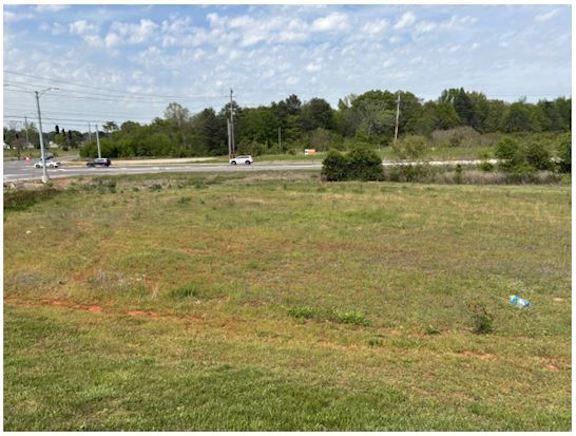State gives $750,000 for new high school road improvements
Published 6:15 am Wednesday, October 25, 2017
The state has agreed to pay $750,000 for a traffic signal and other road improvements near the new Athens High School going up off U.S. 31.
Athens City Council members approved the agreement with the Alabama Department of Transportation during their regular meeting Monday. The city and city schools will pay for the remaining $750,000 of the total $1.5 million cost for the improvements, which will include:
Trending
• Installing a traffic signal at the entrance to the new high school;
• Making crossover improvements on U.S. 31 (southbound right-turn lane and northbound left-turn lane at the new Athens high driveway); and
• Improving Pryor Street at Dexter Street, and U.S. 31 at Alabama 251.
ALDOT recommended the changes after conducting a traffic study. The study estimated the new high school would generate up to 1,486 trips during the morning and up to 740 trips during the afternoon.
Cost
The council and city officials discussed the matter during their premeeting work session.
Trending
Rich said the city had presented the contract for the improvements to the state a few weeks ago. The agreement says the state will pay 50 percent of the cost of the improvements, up to $750,000.
He said that will cover most of the cost of the signal at the school and the improvements at U.S. 31. The cost of the rest of the improvements — for Pryor, Dexter and U.S. 31 — will cost about $750,000 and will be shared by the schools and the city. The schools will pay 75 percent (about $550,000) and the city will pay 25 percent (about $200,000), he said.
Work would likely begin after the first of the year and end before the 2018 school year begins, Rich said.
Councilman questions Bible School
District 2 Councilman Harold Wales asked Rich who would pay if the improvements cost more than $750,000.
“The schools would have the cost overrun unless the city said it would participate,” Rich said.
Wales questioned why Athens Bible School, which is building a new school across U.S. 31 from the new high school, does not have to contribute.
“The Bible School will benefit from the traffic signal but are contributing nothing,” Wales said.
Rich said when ABS obtained its permits to build soccer fields at the future school site, it built dedicated improvements at that time.
Mayor Ronnie Marks agreed and said, “They met all of their DOT requirements when they got their permits back before this (the new Athens High School) was brought to the table.”
Rich said the city may have to look at additional road improvements when the city builds a new recreation center at the Sportsplex on U.S. 31. The recreation center is just in the planning stages now.
What about sidewalks
District 5 Councilman Wayne Harper asked whether additional sidewalks will be covered by the money.
Rich said the city has already obtained a TAP grant to build sidewalks down Pryor Street and U.S. 31, north to the apartments and south to Hobbs Street. However, the grant does not cover adding sidewalks up Dexter Street.
“We can do that with our labor force, and we probably should look at doing that,” Rich said.
Residents question planning
During the public comment portion of the meeting, two residents asked council members to consider conducting a master plan for the area to deal with traffic issues that may be triggered by further development of the area.
Ahead of the meeting, two residents asked about the impact of traffic that may come in to their residential area because of development in the area, including possible businesses and a 100-house development behind the high school.
Scott Croomes, of 1121 E. Pryor St., asked the council to consider hiring a consultant to develop a plan to address development and traffic flow in the existing residential area where he lives, including whether alternate routes might be created for any future housing development that may come in behind the high school.
Allyan Griffin asked the council what procedures are in place for residents who believe incoming business and housing might produce too much traffic and an inadequate plan to deal with it.
Rich said each development would have to have its plans reviewed and approved by the city Planning Department as well as the Athens Planning Commission and the City Council before they could proceed. Residents could oppose a plan if they felt it did not adequately address these issues.





